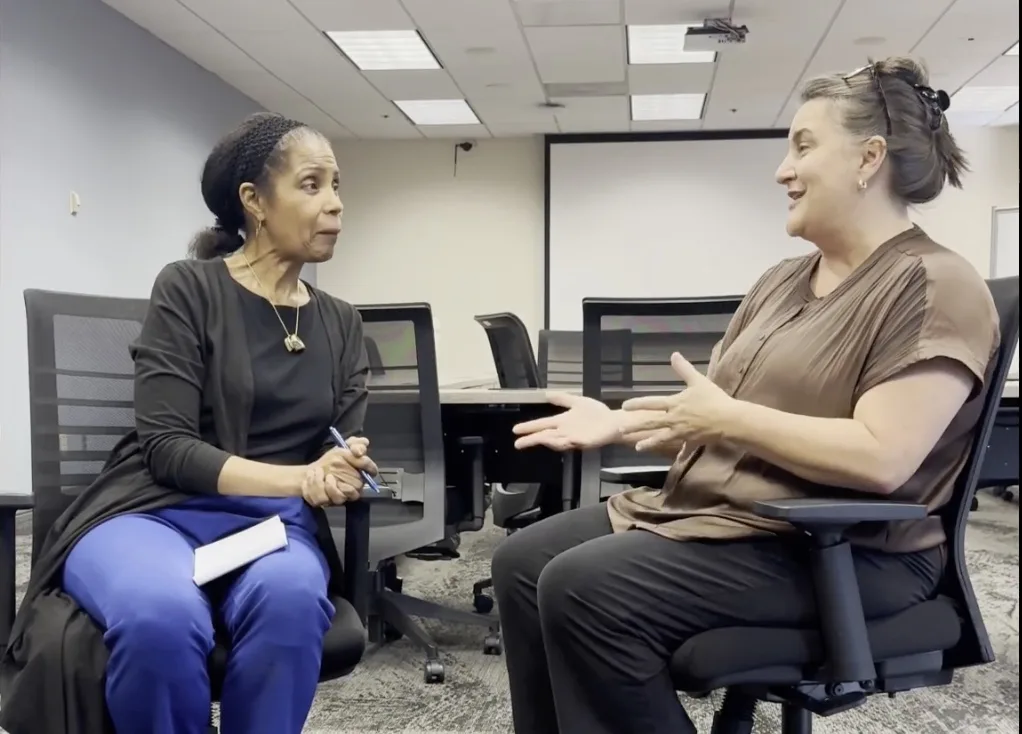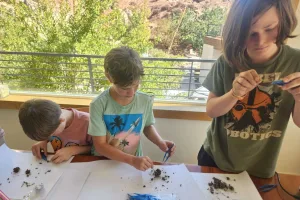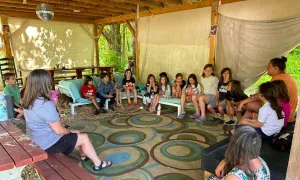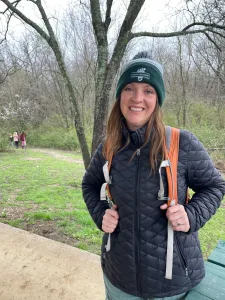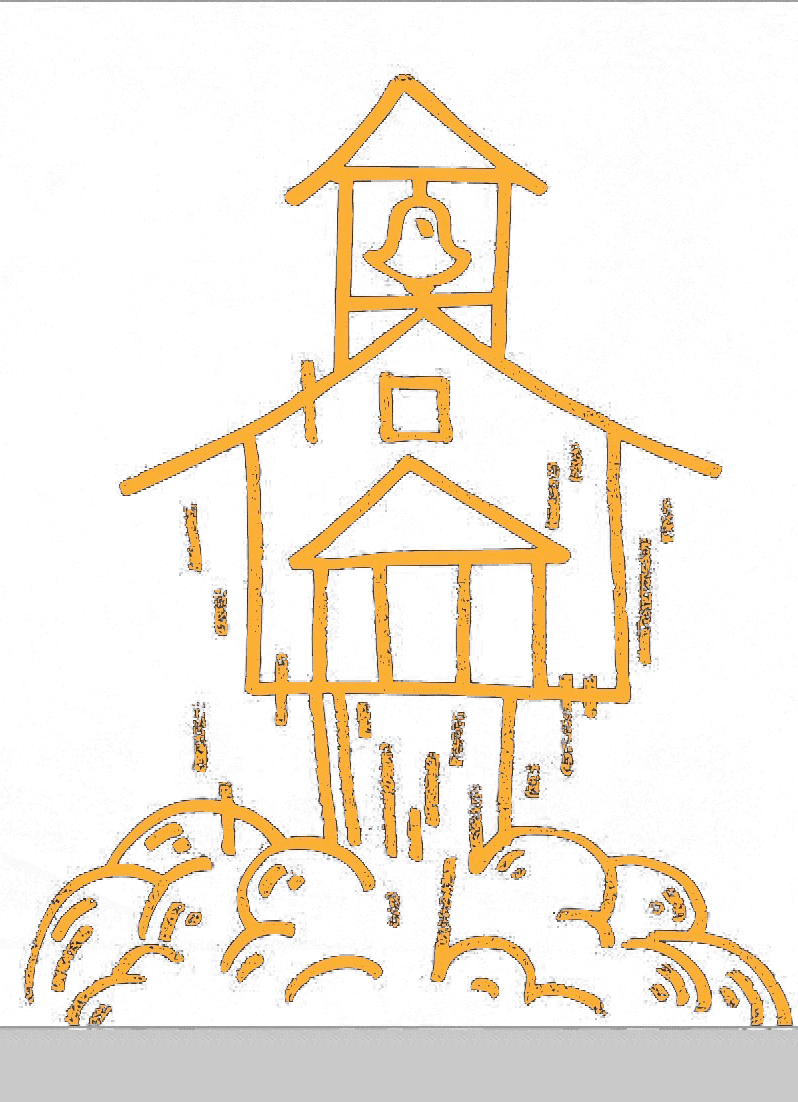A little over a year ago, I heard about a group from Johns Hopkins University that was collecting data about homeschoolers. I confess, much to my chagrin, that I followed the lead of many of my highly skeptical peers. Who were these people? From what I read on their website, none were homeschoolers. What was their motivation? Were they for or against homeschooling? I didn’t have any clear answers. What I did have was the voice of my late grandmother, who always encouraged me to go talk to the “new kid.” “Chances are,” she advised, “you’ll have a lot more in common than you thought.”
In September, the opportunity presented itself, as Dr. Angela Watson, founder of the Johns Hopkins University Homeschool Hub, spoke at an event I attended. This event was sponsored by 50CAN, a national advocacy group of community and state leaders focused on student outcomes and education reform. Sharing her research, Dr. Watson presented statistics about homeschooling that confirmed what I already knew as a homeschooler—that we are an incredibly diverse group, contrary to what is often portrayed in the media. In very real terms, the world of academia was challenging the long-standing narrative surrounding homeschooling, and this fully resonated with me. As the Homeschool Mythbuster, I appreciated everything she shared and wanted to know more.
Immediately after the workshop, I approached Dr. Watson, to thank her and share my work as the longtime leader of an academic homeschool program in Maryland, and asked if we could connect further. Four weeks later, I participated in an event at Johns Hopkins University hosted by the Homeschool Hub, met Dr. Watson’s team—which now includes homeschooling parents—and interviewed Dr. Watson. During the interview, I specifically asked Dr. Watson to share her heart, including her reasons for creating the Hub and what she hoped to see in the future through her research.
The seeds for the Homeschool Hub were planted approximately ten years ago during Dr. Watson’s years as a graduate student, during which she lightly began researching homeschooling, following her interest in reforming education and helping children obtain better learning experiences. Dr. Watson believed that parental engagement and understanding what actions parents were taking in their children’s learning would be instrumental in making meaningful changes in education. At the time, few, if any, people were researching homeschooling, yet she discovered a vast potential for research and subsequent parental application through this work.
According to Dr. Watson, “No one was really researching homeschooling, and it seemed like an area with lots of potential for good research and for the parent lever. And I was also just interested in it, and so I kind of kept it up in the background even before it was funded, and when I thought no one else was really very interested in it. The work really grew when I started to realize how exaggerated or just plain untrue the common stereotypes about homeschooling were and still are.” The greater the disparity grew between her research and the public narrative, the more determined she became to bring accurate information into the public arena.
When Dr. Watson first joined the staff at Johns Hopkins, it was to conduct broad-spectrum research on education, including teacher quality, quality instruction, and student outcomes. Her research into homeschooling remained quietly ongoing in the background. Then, the pandemic hit, followed by the emergence of pandemic learning pods. Suddenly, state leadership organizations began calling Johns Hopkins, asking for existing research about these “pandemic pods.” While none formally existed at the time, Dr. Watson’s collection of state-by-state homeschooling data, which goes as far back as 2000, uniquely equipped her to respond. On October 23, 2020, Dr. Watson released a groundbreaking report on homeschooling and microschooling, and their relationship to pandemic learning pods. In making her research available, the stage was set for the birth of the Homeschool Hub, which catalogues homeschool laws, provides participation data from states that report this information, and makes this data easily accessible for fellow researchers, media, state policymakers, as well as everyday parents seeking information on homeschooling.
Built in the fall of 2023 and formally launched in the spring of 2024, the Homeschool Hub is making Dr. Watson’s name synonymous with homeschooling research. By design, the Homeschool Hub is not an advocacy organization, maintaining a non-partisan and neutral posture, offering just the data. Yet, what powerful statistics they are, as Dr. Watson’s research continues to challenge and systematically dispel the many pervasive myths surrounding homeschooling. The truth is that homeschooling parents resemble their conventionally schooled counterparts in many ways, and their ideological affiliations are similar: 29% identify as Democrats, 27% as Independents; 25% as Liberals, and 32% as Moderates. That homeschooling parents have the same concerns and considerations was borne out by the statistics in a recently published Harvard Kennedy School paper, “Who Homeschools and What Does ‘Success’ Mean to Them? Experimental Evidence from a National Sample,” authored by Dr. Watson and Dr. Matthew Lee of Kennesaw State University. Another recent article published by the Homeschool Hub highlights the statistical evidence documenting racial and ethnic diversity within the homeschooling community. Currently, 15% of homeschooling families identify as Hispanic; 10% are Black/African-American; and 5% are Asian. These articles, along with the increasing body of research arising from the Hub, stand in stark contrast to long-held stereotypes about homeschoolers.
Nonetheless, Dr. Watson readily acknowledges that there is much more work to be done. While initially, data came by way of state reporting agencies, the Homeschool Hub is now turning to active homeschooling families to provide a fuller and more accurate picture of homeschooling to the outside world. What was evident to Dr. Watson many years ago remains true today: tremendous research potential with the opportunity to glean meaningful lessons in educational opportunities and outcomes exists within the vast, multi-faceted homeschooling community.
To that end, Dr. Watson and her team are intentionally reaching out to members of the homeschooling population to facilitate data collection. With the formation of the Community Advisory Panel, homeschoolers of varying backgrounds share the table with policymakers and offer input on how best to connect with and earn the trust of homeschoolers. The Hub is actively listening and taking extraordinary steps to ensure the data collected is not only reliable, but the collection process is conducted with care and sensitivity toward participating families, thereby offering a genuine opportunity for the voices of homeschoolers to be heard with integrity.
My grandmother’s sage advice continues to prove invaluable. I’ve spoken to the new kid, and true to Grandma’s word, we do have a lot in common. We are both committed to challenging the myths surrounding homeschooling—Dr. Watson through the data, and I through the shared experiences of the homeschooling community I serve and am a part of. My encouragement to other homeschoolers is to embrace the opportunity to contribute to this research. The current data collected supports the strength of homeschooling, but it is incomplete, and homeschoolers have a chance to contribute meaningfully to this work. When surveys arrive, welcome them and respond. Don’t skeptically hold the Homeschool Hub at arm’s length as I had mistakenly done. Rather, embrace the work. Dr. Watson’s research through the Homeschool Hub is bridging the gap between the world of academia and the world of homeschoolers, and as that bridge strengthens, everyone benefits.
